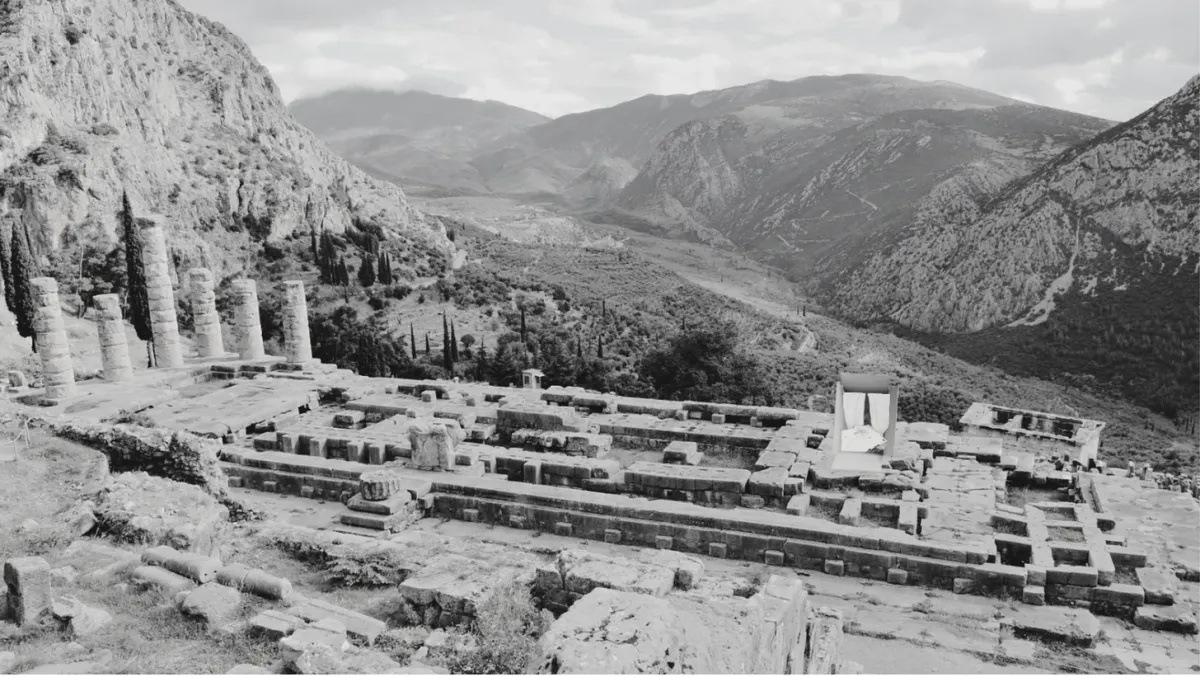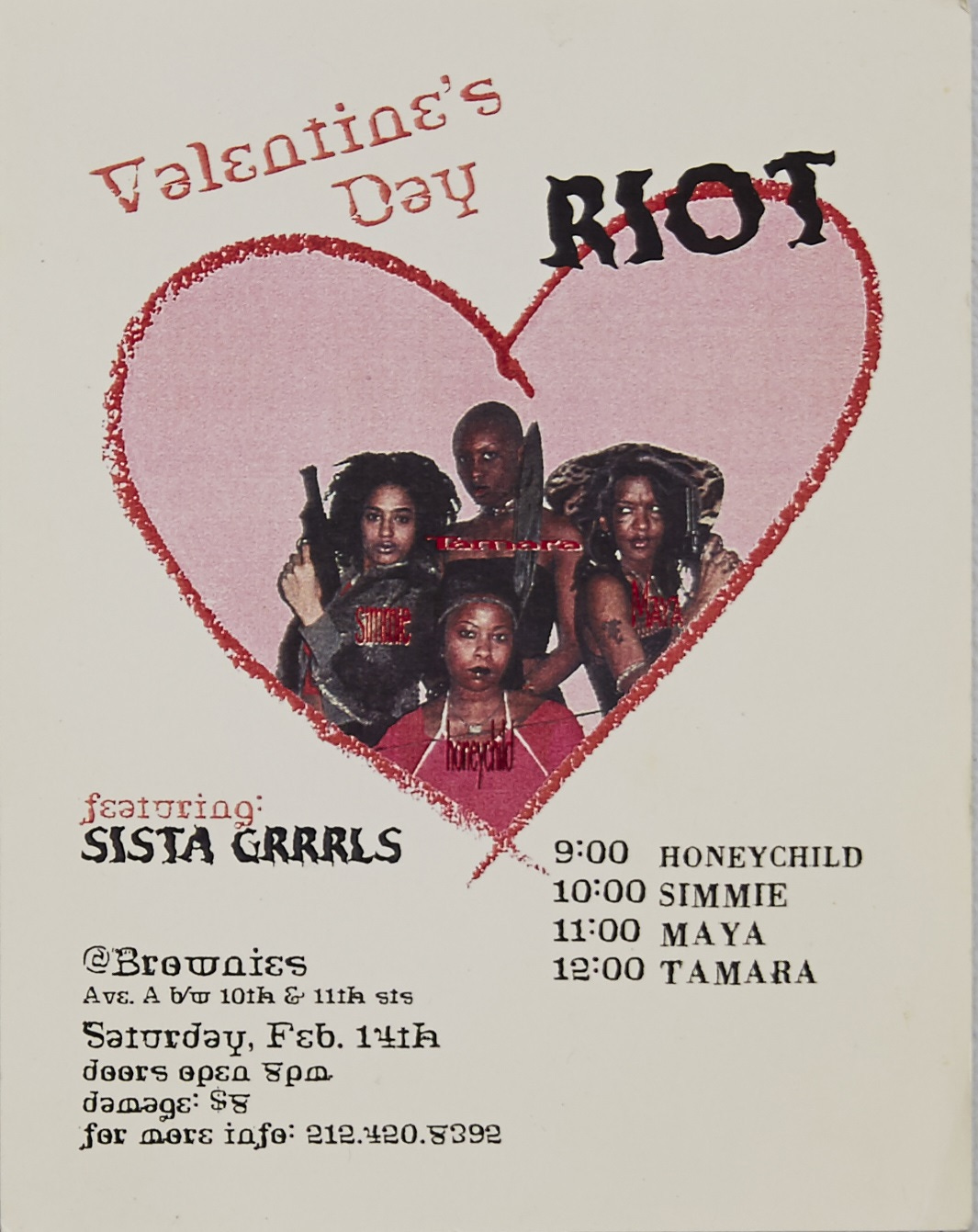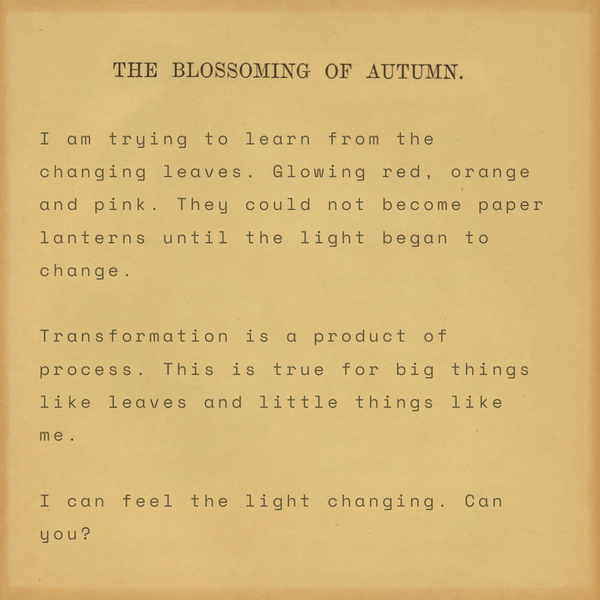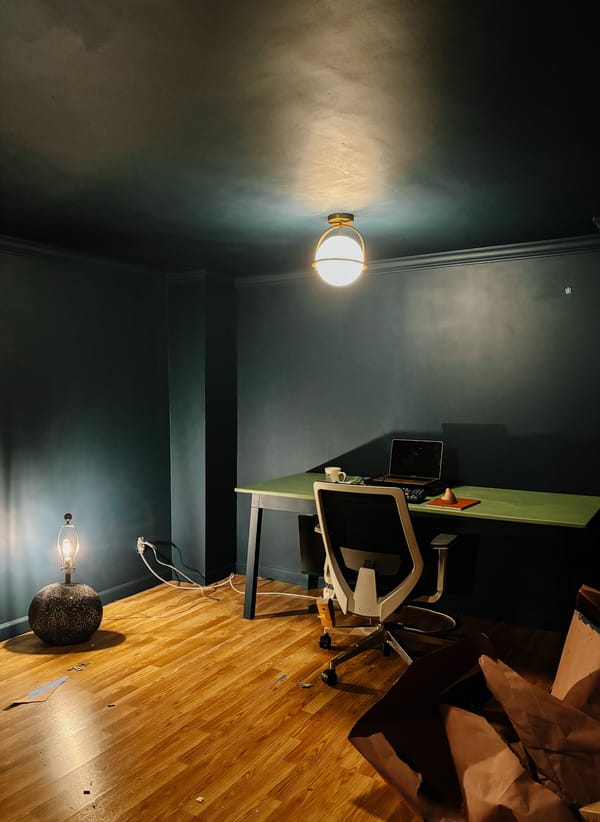Oracles and Angry Girls
Choose what is divine

Brontë turned a big cardboard box into a structure she says is “like a playhouse, but not.” It sits in our kitchen. The exterior is covered in color pencil drawings of people, mythical creatures, rainbows and the sun. She’s drawn our family on the inside of the box. Each of us a stick figure, connected to each other with hearts drawn into our stick hands. Sometimes she presses down so hard, her colored pencils carve out bits of cardboard.
Every morning she wakes up, gets dressed, descends the stairs, walks into the kitchen, parts the curtains (pillow cases) at the entrance of her playhouse but not, and settles in. She’s often in the box before any of us wake up. Sometimes I can hear her colored pencils scratching against the paper walls when I walk into the kitchen. Sometimes she’s just sitting in there, silent. I don’t know she’s there until I hear her voice.
This morning I thought I was alone while I made breakfast. I called out a question to my oldest, “Margaret, do you want bacon or sausage?” Brontë’s voice answered from the box, “You know she likes link sausage but doesn’t really like patty sausage. So which sausage is it?” Startled, I laughed. Without peaking her head out, Brontë said,
“What? It’s true.”
And it was true. I had patty sausage. So I made bacon instead.
Brontë eats breakfast in her cardboard sanctuary most mornings. I drizzle her pancake with syrup and leave it outside the curtains on a smaller box she calls her porch. It’s the same routine every morning for two weeks now.
This morning that routine felt like a ritual. I don’t really know why.
Maybe it was Brontë’s wise answer to my unwise question. Maybe it was the nearly empty syrup bottle. I had to hold it upside down over her pancakes for a few extra moments. The syrup came out in gold threads. And I remembered it is sugar that is sap from a tree.
The cardboard box wasn’t like a playhouse because it was a temple. The leavened cake and sweet sap I placed on the porch were an offering. And my little five year old was an oracle.
And why not? Wisdom can’t spring from ground irradiated by authority. The future can’t be known by someone who perceives time. And the possible can’t known by someone who can define the impossible. If the gods could speak through a human, it’s difficult to think of someone more fit for their words than a five year old girl.
In Ancient Greece, people carried heavy questions on long journeys to the Temple of Apollo at Delphi. They hoped to unburden themselves to the priestess Pythia, the Oracle of Delphi. Each supplicant could ask her one question. The gods would provide one many-wayed answer through her mouth.
Before standing before the oracle, seekers made an offering at the temple’s pronaos, a porch with great columns. Three Delphic orders were carved on a column in the pronaos,
Nothing too much
Know theyself
A pledge is the daughter of recklessness
After the sacrifice, the supplicant followed a priest into the temple. As they walked through the temple, they passed over 140 Delphic orders inscribed on the stone interior. Each one a kind of question and a kind of answer.
Honor Hestia
Pray for things possible
Know what you have learned
Tell when you know
Act when you know
If you are a stranger act like one
Perceive what you have heard
Observe what you have heard
Choose what is divine
Love whom you rear
Struggle with glory
Crown your ancestors
On reaching the end - without sorrow
The seekers had to walk down a set of steps to be in the presence of the oracle. Down into the cella, the innermost sanctuary of the temple.
The cella was small, just big enough to hold the priestess, supplicant, and the vapors of revelation. The seeker asked their question with their eyes opened or closed. The priestess breathed in deeply and answered rhythmically. When she stopped speaking, the answer was complete. The supplicant left her cell and was replaced by another.
They inspected their answers on their journeys home, often bewildered to find they’d exchanged one question for many questions. I guess seekers are rarely satisfied. And so oracles are always busy.
Brontë ate pancakes inside her box while I finished making lunches.
While I portioned out crackers and apple slices, I thought about the days, months, years before someone set out on their journey to the oracle. How long did each seeker ask their question before they recognized it was worthy of a gods answer? Was their question a carefully mixed compound of years of wondering? Or did their question come to them suddenly, fully formed and unalloyed by contemplation? And if I could ask just one question of the gods, what would it be?
Brontë put her plate on the porch, it was empty, only the stick of the syrup remained. My offering had been accepted. When I bent down to pick the plate up, Brontë parted the curtains. I looked at her and she looked at me. I suddenly had a question,
“Do you know I love you?”
She smiled, “I do.” And then retreated back behind the curtains.
I took her plate to the sink, waiting to hear the scratch of colored pencils on cardboard before I turned on the faucet.
Have you heard the new Olivia Rodrigo album yet?
It’s all catchy deconstruction. A glorious combination of the Riot Grrrl movement and I’ve got to say….the early years of Dolly Parton. When Rodrigo is just a little older, I fully expect her to cover Harper Valley P.T.A.*
(Maybe later Parton too, as Logical reminds me of Parton’s The Grass is Blue.)
*Jeannie C Reilly sang this first. A mother doesn’t choose favorites, so I love her version and Parton’s equally.
Two Things to Read While You Listen

Like the original punk scene, the riot grrrl movement struggled to recognize intersectionality. Many women of color left the riot grrrl movement when they felt their voices went unheard. Tamar Kali-Brown, Simi Stone, Honeychild Coleman, and Maya Sokora were four Black women who formed their own punk band for and by Black women called Sista Grrrls. They referred to their performances as riots.
And…
I wrote about encouraging my girls to angry scream sing the eff word along with Rodrigo when her last album came out in Angry Girls, Angry Women




